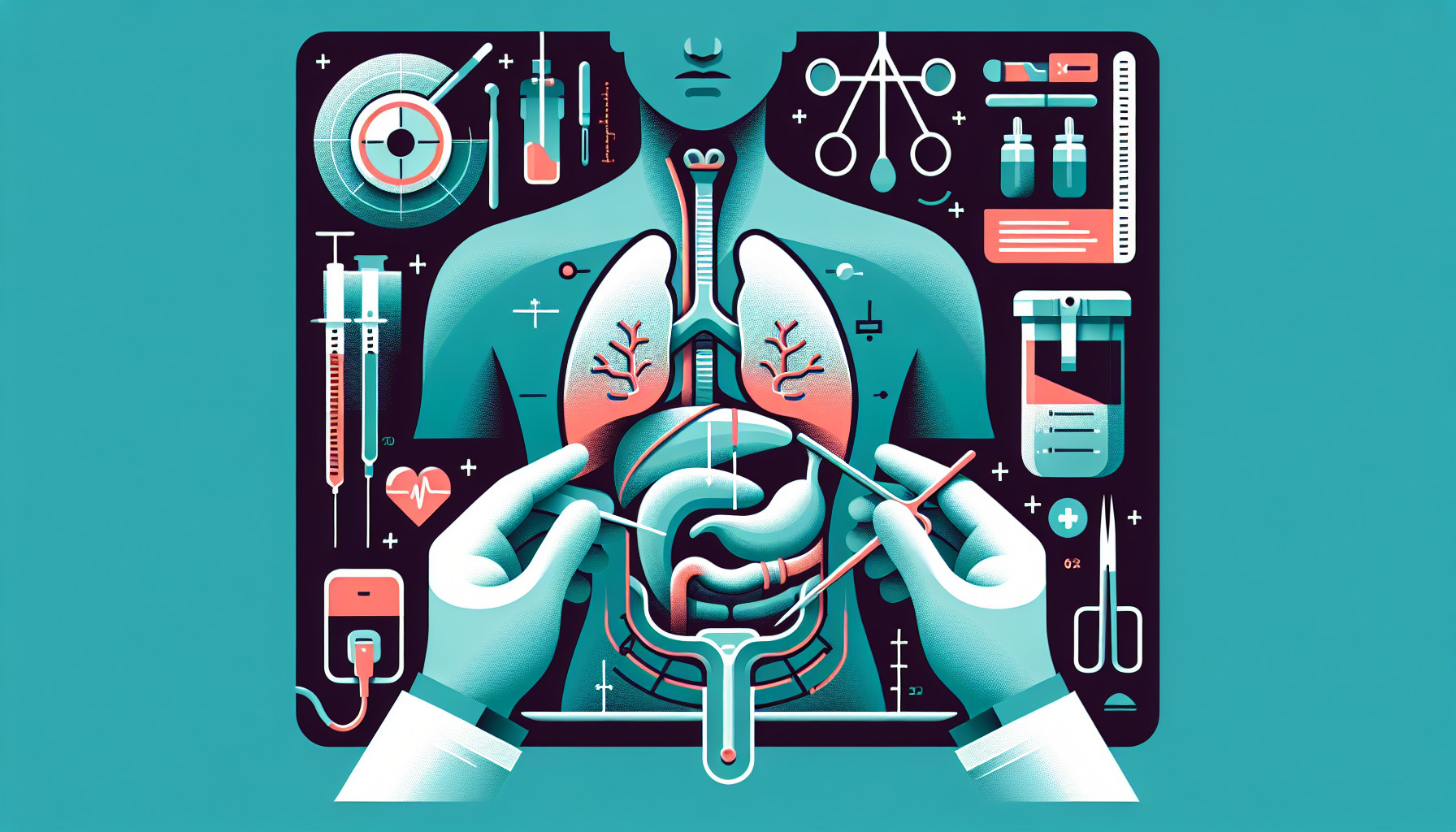Our Summary
This research paper looks at infections that occur at the site of surgery (known as SSIs) in patients who have had a pancreas and/or kidney transplant. The researchers were specifically interested in how often these infections occur, what causes them, and how they affect the patient’s recovery.
They studied 130 patients who had either a pancreas transplant or a combined kidney-pancreas transplant and followed their recovery for at least 90 days. They found that 14% of these patients got an SSI within the first three months after their transplant. The most common type of infection was deep within the surgical wound or in the space around the transplanted organ. Most of these infections were caused by a type of bacteria known as Enterococcus.
Patients who got an SSI had to stay in the hospital significantly longer than patients who did not get an infection. After considering other factors that might extend a patient’s hospital stay, the researchers found that having an SSI increased the length of the hospital stay by 36%.
In other words, getting an infection after a pancreas or kidney-pancreas transplant is relatively common and can significantly delay a patient’s recovery.
FAQs
- How often do surgical site infections (SSIs) occur in patients who have had a pancreas and/or kidney transplant?
- What is the most common type of infection post pancreas or kidney-pancreas transplant?
- How does having a surgical site infection affect a patient’s length of stay in the hospital after a pancreas or kidney-pancreas transplant?
Doctor’s Tip
A helpful tip a doctor might give a patient about pancreas transplant is to closely follow post-operative care instructions to reduce the risk of developing infections at the surgical site. This may include keeping the surgical incision clean and dry, taking prescribed antibiotics as directed, and monitoring for any signs of infection such as increased redness, swelling, or drainage at the incision site. It is also important to attend all follow-up appointments with your healthcare team to ensure proper monitoring and management of any potential complications.
Suitable For
Patients who are typically recommended for a pancreas transplant are those with type 1 diabetes who have difficulty controlling their blood sugar levels with traditional insulin therapy. These patients may also have complications such as kidney disease, nerve damage, or vision problems related to their diabetes.
In addition, patients who have end-stage kidney disease and require a kidney transplant may also be recommended for a combined kidney-pancreas transplant if they have type 1 diabetes. This type of transplant can help improve overall organ function and quality of life for these patients.
Overall, patients who are recommended for a pancreas transplant are those who are experiencing significant complications related to their type 1 diabetes and would benefit from improved blood sugar control and organ function. However, it is important to consider the risks associated with surgery, including the potential for infections such as SSIs, when making the decision to undergo a pancreas transplant.
Timeline
Before the pancreas transplant:
- Patient undergoes extensive medical evaluation to determine eligibility for transplant
- Patient is placed on waiting list for a donor pancreas
- Patient undergoes pre-transplant tests and evaluations to ensure they are healthy enough for surgery
- Patient receives a donor pancreas and undergoes surgery
After the pancreas transplant:
- Patient is closely monitored in the hospital for complications and signs of rejection
- Patient may experience side effects of the anti-rejection medications
- Patient undergoes regular follow-up appointments and tests to monitor the function of the transplanted pancreas
- Patient may need to make lifestyle changes to maintain the health of the transplanted organ
- Patient may experience infections at the surgical site, which can delay recovery and require additional treatment
- Patient may need to continue taking anti-rejection medications for the rest of their life to prevent rejection of the transplanted pancreas.
What to Ask Your Doctor
Some questions a patient should ask their doctor about pancreas transplant and the risk of SSIs include:
- What steps can I take to reduce my risk of developing a surgical site infection after a pancreas transplant?
- What symptoms should I watch out for that may indicate an infection at the surgical site?
- How will my medical team monitor me for signs of infection after the transplant surgery?
- What treatments are available if I do develop a surgical site infection?
- How will a surgical site infection affect my recovery and overall outcome following the transplant surgery?
- Are there any specific factors in my medical history or health status that may increase my risk of developing a surgical site infection?
- What is the protocol for preventing infections during and after the transplant surgery?
- How common are surgical site infections in patients who have had a pancreas transplant, and what is the typical course of treatment for these infections?
- How long should I expect to stay in the hospital after the transplant surgery, and how might that change if I develop a surgical site infection?
- What long-term effects, if any, can a surgical site infection have on the success of the transplant and my overall health?
Reference
Authors: Schreiber PW, Laager M, Boggian K, Neofytos D, van Delden C, Egli A, Dickenmann M, Hirzel C, Manuel O, Koller M, Rossi S, Schmied B, Gürke L, Matter M, Berney T, de Rougemont O, Kuster SP, Stampf S, Mueller NJ; Swiss Transplant Cohort Study. Journal: J Hosp Infect. 2022 Oct;128:47-53. doi: 10.1016/j.jhin.2022.07.009. Epub 2022 Jul 14. PMID: 35840001
